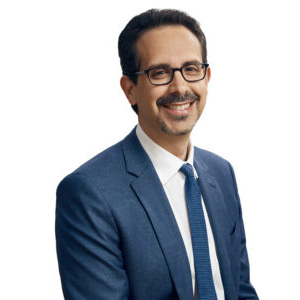Medical Advisory Board

Geraldine McGinty
Dr. Geraldine McGinty is an internationally recognized expert in health care strategy and imaging economics, a practicing radiologist, and an unwavering advocate for patient-centered quality care. A faculty member at Weill Cornell Medicine in New York City, she serves several roles including Associate Professor of Radiology as well as Chief Strategy Officer and Chief Contracting Officer for the Physician Organization. Dr. McGinty has broad knowledge of reimbursement and is recognized as a transparent influencer and collaborative team-based decision maker who effectively negotiates difficult strategic and contractual issues. Moreover, she is a boundlessly energetic leader and advocate for the intersection of technology and healthcare.

Deborah Estrin
Deborah Estrin is the Robert V. Tishman ’37 Professor at Cornell Tech and in the Computer Science Department at Cornell University, and currently serves as Associate Dean for Impact at Cornell Tech. She is founder of the Health Tech Hub and directs the Small Data Lab at Cornell Tech, which develops new personal data APIs and applications for individuals to harvest the small data traces they generate daily. Dr. Estrin is also co-founder of the non-profit startup, Open mHealth.
Previously, Dr. Estrin was on the UCLA faculty where she was the Founding Director of the NSF Center for Embedded Networked Sensing (CENS), pioneering the development of mobile and wireless systems to collect and analyze real time data about the physical world and the people who occupy it.
Dr. Estrin was chosen as a 2018 fellow of the MacArthur Foundation.

Dean Schillinger
Dr. Dean Schillinger is Professor of Medicine in Residence at the University of California San Francisco, and Chief of the UCSF Division of General Internal Medicine at San Francisco General Hospital (SFGH). He is a practicing primary care physician at SFGH, an urban public hospital, where he sees patients, teaches in the primary care residency program, and conducts research. In his prior administrative roles, he has directed the Medi-Cal managed care clinic at SFGH, the General Medicine Clinic at SFGH, and has been the Director of Clinical Operations for the Department of Medicine. Dr. Schillinger also serves as Chief of the Diabetes Prevention and Control Program for the California Department of Public Health.
Author of over 130 scientific manuscripts, Dr. Schillinger carries out research related to healthcare for vulnerable populations, and is an internationally recognized expert in health communication science. His work focuses on literacy, health communication, and chronic disease prevention and management. He has carried out a number of studies exploring the impact of limited health literacy on the care of patients with diabetes and heart disease and has developed and evaluated communication programs tailored to the literacy and language needs of patients with chronic disease. He has been the recipient of research grants from NIH, AHRQ, CDC, The California Endowment, The Commonwealth Fund, and the California Health Care Foundation. He has been honored with the 2003 Institute for Healthcare Advancement Research Award; the 2008 Research Award in Safety and Quality from the National Patient Safety Foundation; the 2009 Engel Award in Health Communication Research; and the California Association of Public Hospital Quality Leaders Award for this work. He was a co-investigator for the National Association of Public Health and Hospital Institute’s Diabetes Quality Improvement Consortium and currently co-directs the California Safety Net Institute’s Innovations Exchange (Dissemination of Evidence for Public Hospital Implementation Network, or DEPHI-Net). In 2013 he received the APHA Everett M Rogers Award in recognition of his outstanding contribution to advancing the study and/or practice of public health communication.
Dr. Schillinger is the founding director of the UCSF Center for Vulnerable Populations, whose mission is to carry out innovative research to prevent and treat chronic disease in populations for whom social conditions often conspire to both promote chronic disease and make its management more challenging. Dr. Schillinger currently directs the CVP Health Communications Program.
In his capacity as Chief Medical Officer for the Diabetes Prevention and Control Program for the California Department of Public Health, he has been expanding the program’s work in health communications, social and environmental determinants of diabetes, and health disparities. He has partnered with Youth Speaks, a youth empowerment organization that harnesses social media, to advance a California diabetes prevention initiative. Dr. Schillinger is also PI for the UCSF component of a recently funded NIDDK P30 Center for Type 2 Diabetes Translational Research (CDTR) with Kaiser’s Division of Research

Yusaf Ali
Dr. Yusaf Ali is a Professor in the Mount Sinai Department of Medicine and Chief of the Division of Rheumatology at Mount Sinai West. He is a graduate of the Royal Free Hospital School of Medicine in London. After two years of postgraduate training in the UK, he moved to the US and did his Internal Medicine training at OHSU in Portland, Oregon. He completed his fellowship training in Rheumatology at Yale University and is board certified in both Rheumatology and Internal Medicine. For three years he was the Vice Chair of Faculty Affairs in the Department of Medicine.
Prior to Mount Sinai, Dr. Ali was in practice in Providence, Rhode Island for nine years, where he was an Assistant Clinical Professor of Medicine at Brown University. He is the recipient of a multitude of awards, including the prestigious Beckwith Family award for outstanding teaching. He has published numerous articles, book chapters, and has lectured widely on Rheumatoid arthritis, Osteoporosis, Gout and Osteoarthritis. His current research involves cardiovascular inflammation as it relates to Gout and he is PI on several studies including novel anticytokine targets in non-radiographic spondyloarthropathy and the role of PET imaging in patients with Rheumatoid Arthritis.

Asaf Bitton
A practicing primary care physician, public health researcher, and health systems innovation leader, Ariadne Labs Executive Director Dr. Asaf Bitton has led efforts globally and nationally to transform primary health care delivery systems and create high quality, integrated care models.
Dr. Bitton’s clinical area of expertise and innovation is in the area of team-based primary care for patients with complex psychosocial and clinical needs. The opportunity to serve these patients by creating a new, team-based primary care practice built from the ground up has deeply informed his work on a local, national, and global level. He practices adult general internal medicine and serves as the assistant medical director at the Brigham and Women’s Advanced Primary Care Associates, South Huntington, an innovative, patient-centered medical home in Jamaica Plain, MA. The practice is a model of integrated behavioral health, risk-stratified care management, community health worker navigation, pharmacist-led chronic disease management, and co-localized specialist integration with psychiatry and geriatrics.
The practice was featured in the Annals of Family Medicine as one of the top 23 primary care practices in the U.S. The practice was also the recipient of the Society of General Internal Medicine Annual Quality and Practice Innovation Award in 2014.
Formerly the director of the Ariadne Labs Primary Health Care Program, Dr. Bitton is a leader of the Primary Health Care Performance Initiative, launched in 2015 at the United Nations. This joint effort, with the Bill & Melinda Gates Foundation, World Health Organization (WHO), the World Bank, and Ariadne Labs, aims to measure primary care country performance in a holistic way within low- and middle-income countries to tailor improvement and financing initiatives. In October 2018, the primary health care team launched at a major WHO Global Primary Health Care Conference in Astana, Kazakhstan, 12 country-level dashboards on primary health care performance, called the “Vital Signs Profiles,” with 12 health ministers and the WHO’s Director-General. Dr. Bitton also has collaborated with international health leaders to build novel health system innovations in Estonia, China, and Ghana.
Under Dr. Bitton’s leadership, the primary health care team fielded and is currently analyzing one of the first nationwide surveys of patient experience and facility function around primary health care in West Africa with the Gates Foundation and Johns Hopkins University. With the Estonian Health Insurance Fund, they have developed and are pilot testing a novel risk-stratified care management intervention to target patients with severe cardiac, pulmonary, and mental health conditions. The team was awarded a grant by the Gates Foundation to lead a transnational learning collaborative around building more integrated health systems through the Joint Learning Network of 33 countries.
Nationally, Dr. Bitton has served as a senior advisor to the Center for Medicare and Medicaid Innovation since 2012, working on the Comprehensive Primary Care Initiative, a national demonstration project of payment-supported primary care practice redesign. Dr. Bitton has focused his efforts there on the practice transformation and care delivery redesign component of the initiative, including annual milestones and metrics for achievable success. The initiative has expanded to now include 18 regions, more than 50 payers, more than 3,000 practices, more than 13,000 clinicians, and nearly 15 million total patients in what is known as Comprehensive Primary Care Plus. It is the largest primary care multi-payer initiative in the country.
As faculty lead for transformation strategy and design at the Harvard Medical School Center for Primary Care, Dr. Bitton led the Academic Innovation Collaborative, a 19-clinic, $14 million, two-year effort from 2012-2014 to transform 20 Harvard-affiliated primary care teaching practices into patient-centered medical homes. The collaborative resulted in documented and published improvements in team function, care outcomes for patients with chronic diseases, and primary care staff experience improvement.
The author of more than 100 peer-reviewed journal articles, Dr. Bitton has led research on both disease-specific public health research efforts, as well as primary care measurement and improvement. His early research centered first on the study of low-cost interventions to stem the growing tide of chronic non-communicable diseases, with a focus on diabetes and obesity in the Pacific Islands, as well as on international tobacco control policies and tobacco industry tactics. This tobacco industry work resulted in publications that helped to pass major EU tobacco control legislation and uncover scientific misconduct in cancer biology journals. He then conducted research on the implementation of global tobacco control treaty protocols with a specific focus on the uptake of clinical smoking cessation interventions.
Dr. Bitton serves on the faculty at Harvard Medical School and Brigham and Women’s Hospital. He supervises residents from the Brigham and Women’s internal medicine primary care program, and mentors general medicine fellows on their research. He holds a bachelor’s degree in health and society from Brown University, an M.D. from the University of California San Francisco School of Medicine, and a master’s degree in public health from Harvard T.H. Chan School of Public Health.
